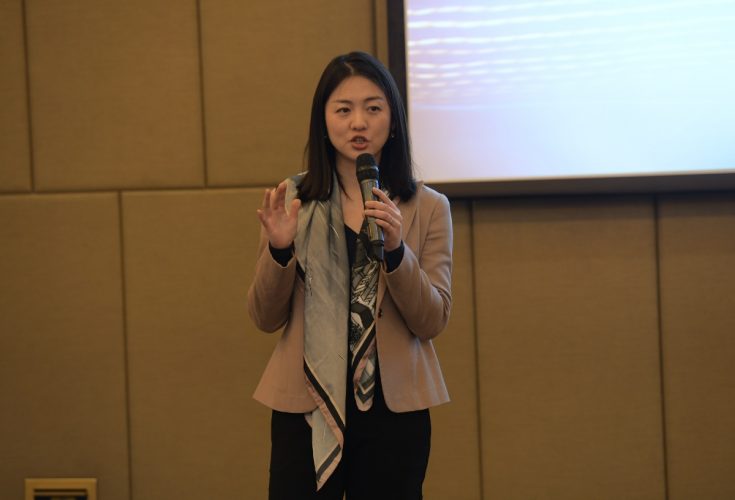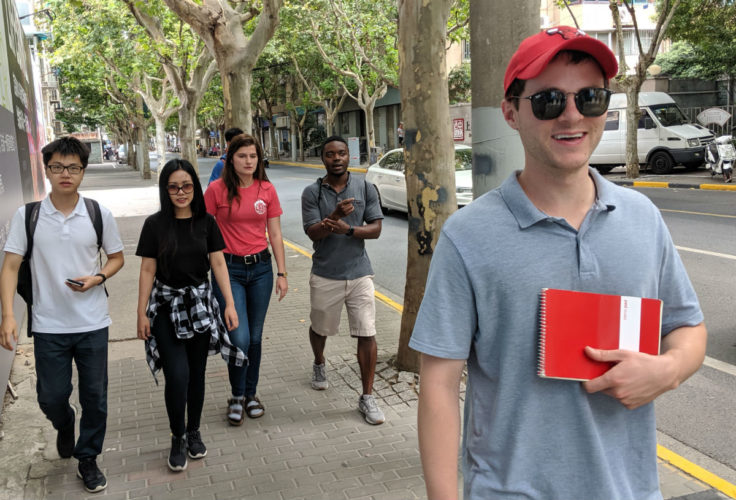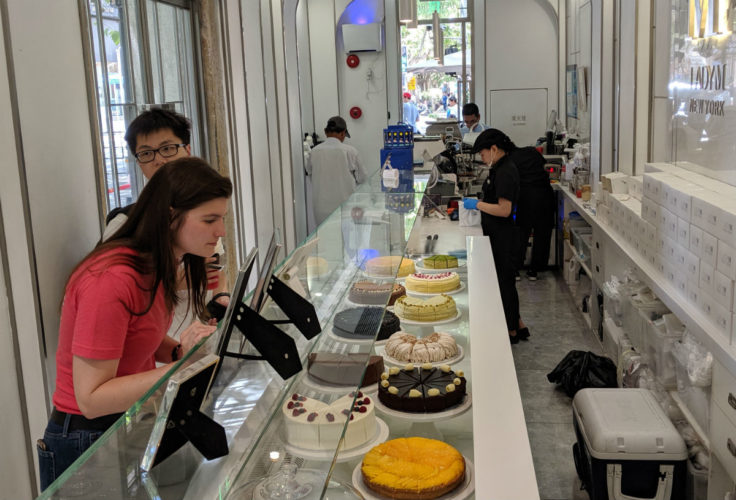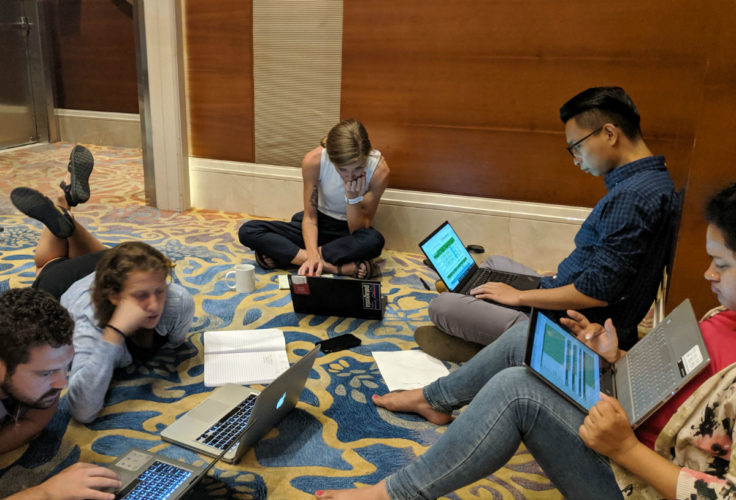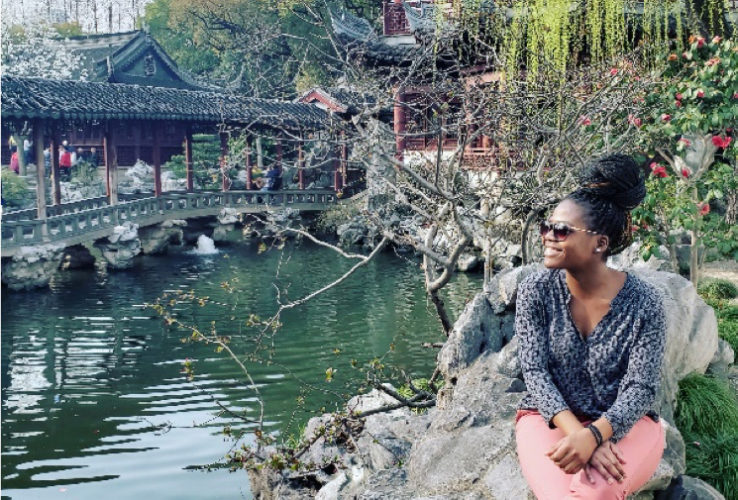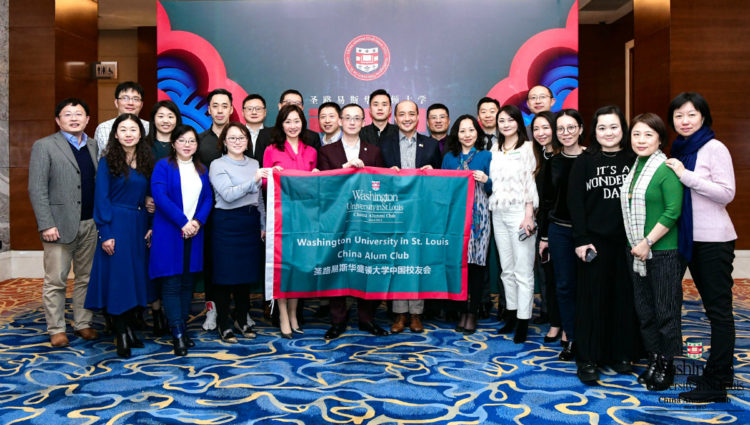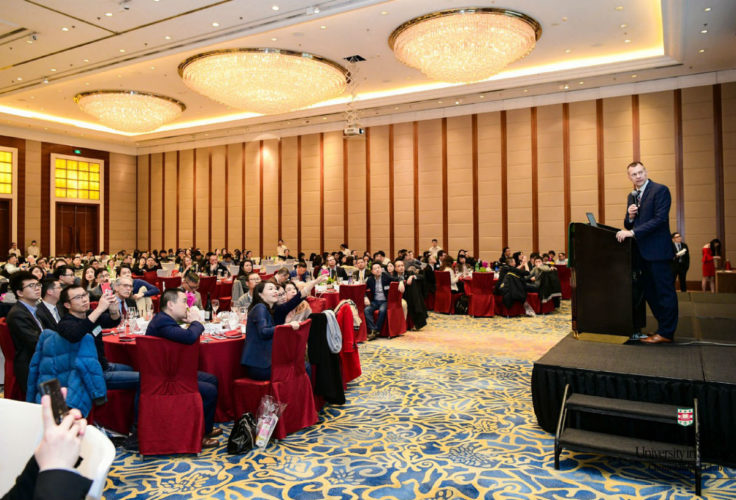Di Lu, Olin’s corporate manager for the Weston Career Center out of Asia, will be recognized February 23 for her outstanding contributions to the AUCA, a coalition of international higher education institutions in China that promotes educational, academic and cultural exchange among students and institutions.
“Di Lu who does fantastic work with our students and it’s wonderful that she’s being recognized for her efforts,” said Dorothy Kittner, senior associate dean for Olin’s Center for Experiential Learning and interim associate dean and director of the WCC.
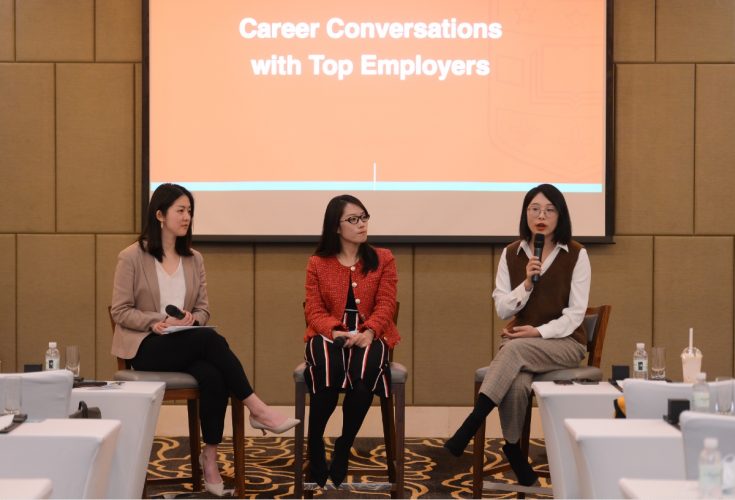
Kittner lauded Lu’s contributions, which include providing networking events in real time in Asia virtually for Chinese students back in St. Louis, identifying student experiential learning projects with firms in Asia and collecting job placement data for students when they return to China.
Lu said she’s proud to have had a role for the past four years with the AUCA’s Student Career Committee representing Olin.
“It has been challenging yet rewarding to source opportunities to students studying in the US and pursuing jobs in Asia,” she said. “It’s exciting to see more Asia-based employers join us in providing students various career options. Hearing the stories of our students who shined in their first jobs in Asia always makes me extremely happy.”
She says the work is a recognition of Olin’s strategic focus on providing students with global opportunities. “Though it’s an award to me as a recipient, I’d like to consider it as a recognition of our team efforts to support students’ career development globally.”
AUCA—originally known as American Universities’ China Association—was founded in 2014 by three American university representatives and now includes more than 150 representatives from more than 90 leading global universities. The organization is transforming to include non-American universities and, while known in China as the Oversea Universities’ China Association, continues to go by AUCA.
The organization’s Career Events Working Committee, representing 20 universities, nominated Lu for the recognition. The organization is gathering February 23 for its annual award ceremony and mixer, where Lu will be recognized.
Lu has been instrumental in representing WashU Olin to students and Olin alumni in China and helping to make connections among them across the country. She was heavily involved in a series of virtual events in October 2020, for example, that helped connect specialized master’s degree students from China when they couldn’t travel to the United States for their classes. Those efforts garnered AUCA recognition as well.
She was also involved in organizing and hosting weeklong meetups in Beijing and Shanghai with SMP students to interact with classmates, engage with alumni, participate in our industry speaker series and meet with a career coach. Those were in spring 2021.


